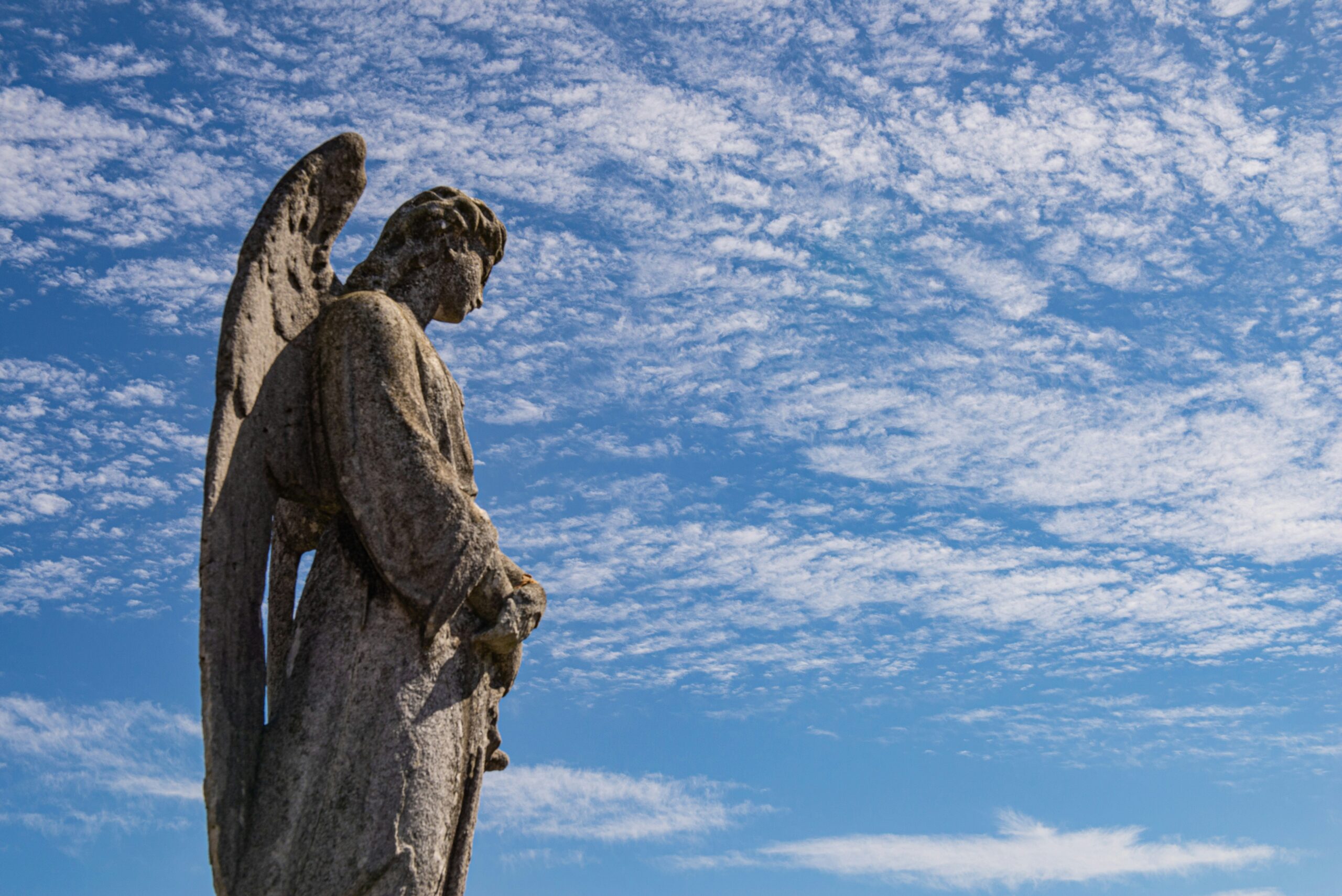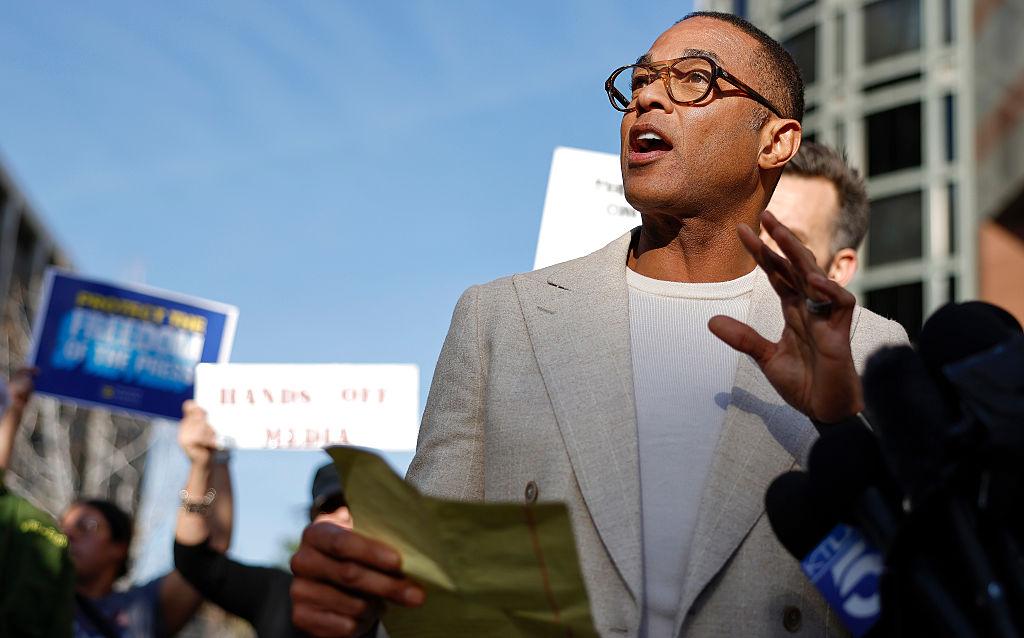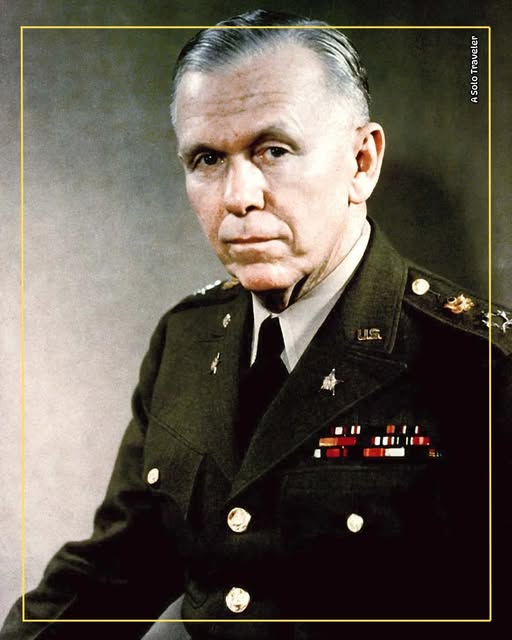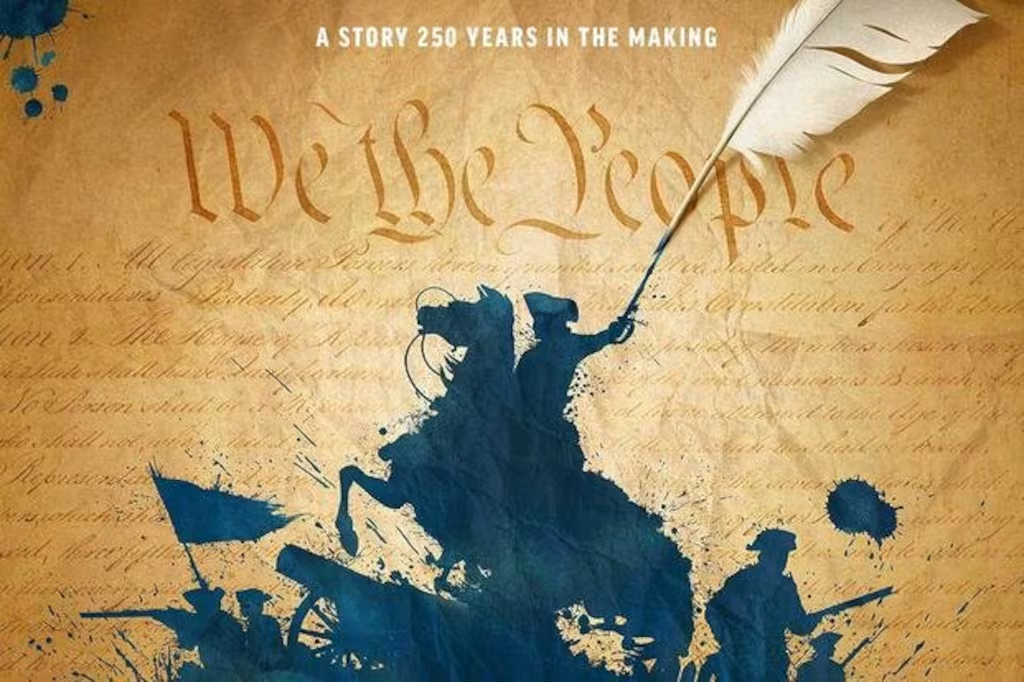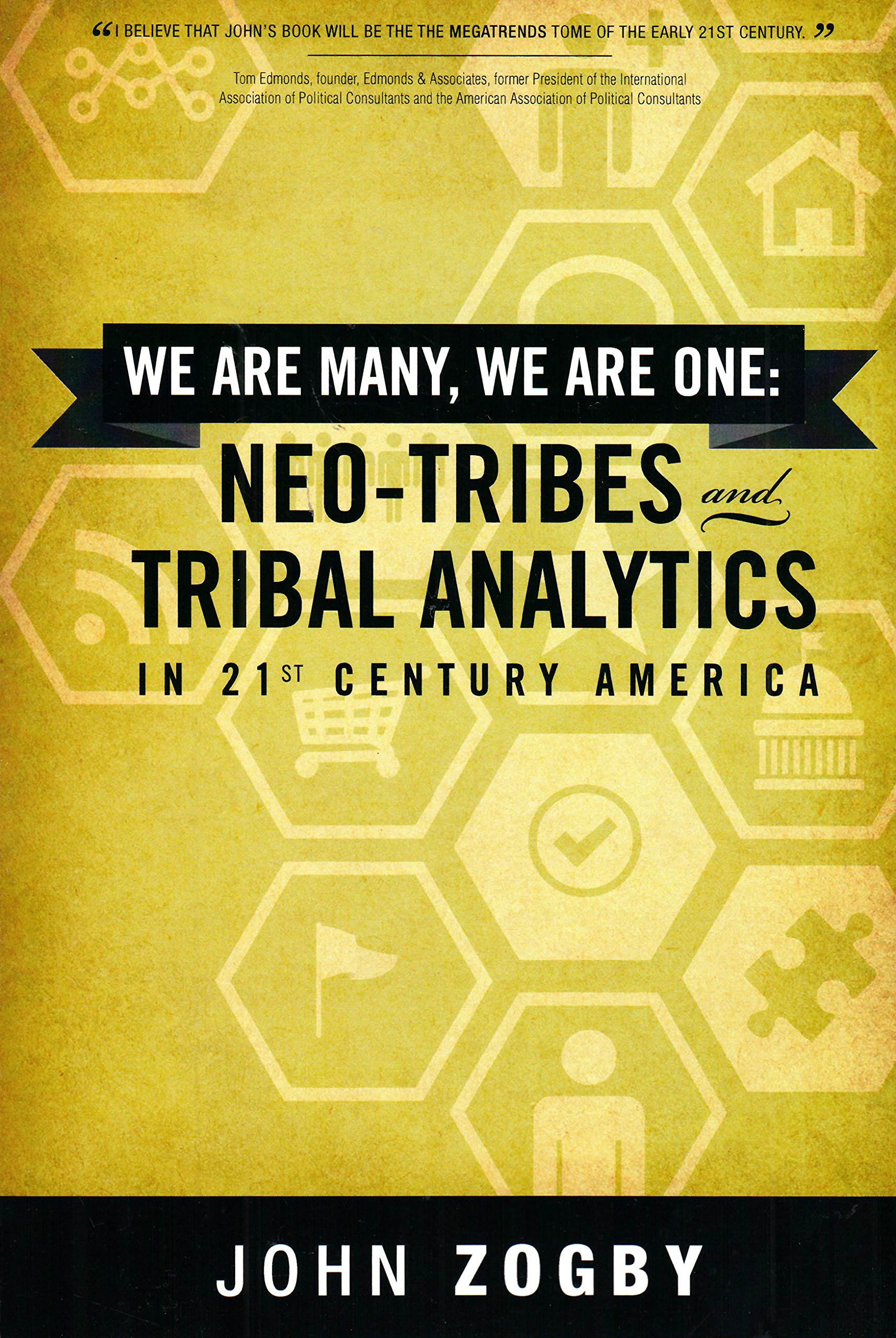With all the fractiousness in the country – Right, Left, Alt-Right, Democrat, Republican, North, South, East, West, up, down – the nation is clearly living through challenging times.
How do we relate to one another with such diverse beliefs, cultures and goals? How can we learn to listen more and bark less?
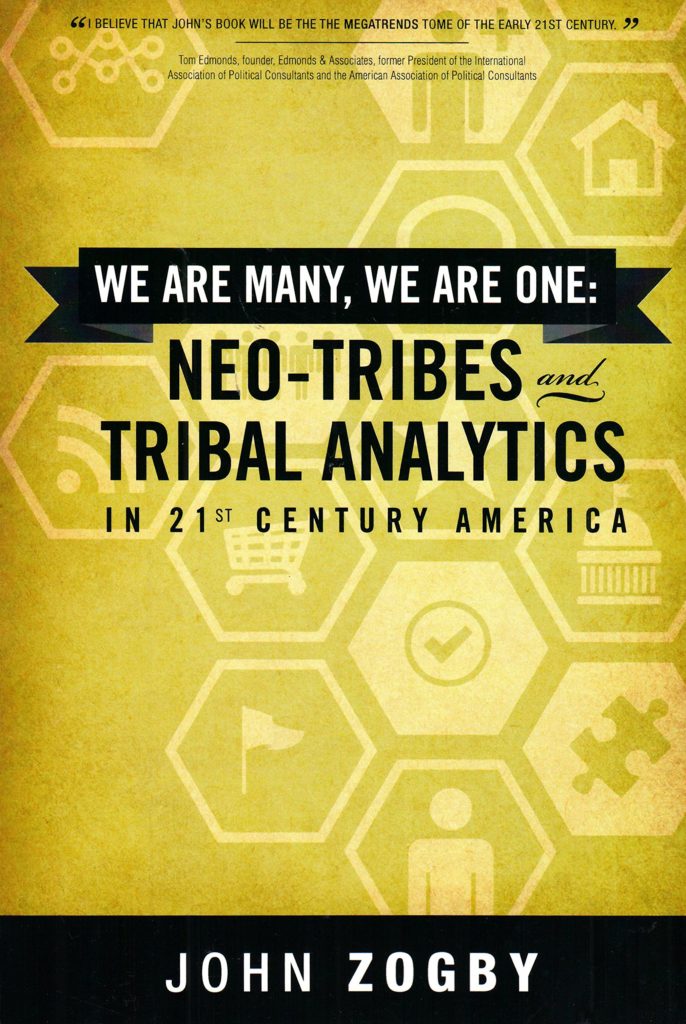
John Zogby’s 2016 book, We Are Many, We Are One: Neo-Tribes and Tribal Analytics, is fascinating insofar as it offers an insightful way of looking at who we are and why we are socially and politically attracted or repelled by some individuals and groups.
Zogby has been a public opinion pollster for decades. The last several years, he’s been looking less as demographics and more at what he calls, “tribal analytics.”
“Demographics are always interesting as a way of understanding and predicting behavior and response,” Zogby writes, “but they are too limiting…
“We inhabit a world of cyberspace and it is also in our minds and hearts – not in our physical neighborhoods, voting precincts, our Rotary meetings, or our churches and stadiums. This new world is as much about how we choose to identify ourselves, how we define our own priorities, and who we ourselves choose as our cohort as it is about where we physically work, play or worship.
“Ethnicity, Zogby points out, “has always been a powerful determinant of values and behaviors, but so many of us Americans are multi-ethnic and multi-racial. The United States has distinct regions and regional differences still standout. But we are more and more mobile and thus many southerners have moved north as many northerners and Midwesterners have relocated south.
“The uniqueness of Tribal Analytics, is that it ‘segments’ the population based on self-identified tribal affinities — shared values, life philosophies and outlooks. In doing so, it transcends demographics and other category-specific attitudes and behaviors that would be the basis of a traditional market segmentation study.”
Working with his team in 2009, Zogby developed a “…unique methodology that could let people tell us who they really think they are… We employed a multi-stage series of surveys and analytics to derive America’s ‘neo-tribes.’ ”
“It is dynamic and flexible enough, Zogby explains, “to capture changes in patterns of people’s lives and priorities. [And] It is bottom-up, not top-down, in its approach to segmentation in that it is derived solely from survey research with no pre-established hypotheses.
“…in the Zogby Analytics open-ended surveys, Americans actually got to name their own tribes in addition to identifying the attributes that describe and offer most meaning to their lives. As the tribes formed early in the survey process, and were validated and shaped in subsequent surveys, distinct differences clearly emerged.”
Tribes have been with us “since humans first began to form groups,” Zogby says. “…initial tribes were based on a shared heritage or extended family network… common enemies, protocols for cooperation,” etc.
However, there are both positives and negatives to tribalism: “…belonging to small groups… is defining, empowering, self-actualizing and enhancing.”
On the other side, “Wars are examples of altruism towards one’s tribe… [as well as] hatred and aggression toward those not in one’s tribe.”
Based on seven years of research and development with a sample of more than 8,000 adults, Tribal Analytics “is a study of how people self-categorize based on self-conceptions: how they perceive themselves as members of a group(s).”
Zogby has identified eleven Neo-Tribes. In order of highest percentage, they are:
Land of the Free (33.2 percent): “represent an amalgam of the most traditional values: duty and responsibility, perseverance, simplicity, and optimism.”
Dutifuls (26.9): “…a modest tribe that treasures authenticity and family in its lives.”
The God Squad, (24.9): whose “lives center around family… [who see their] future… in the hands of God.”
Go with the Flow, (23.5): is defined by “Zen and balance. … This tribe’s members lead all others in identifying themselves as open-minded and balanced.”
Persistents, (19.4 percent): “…(94%) defines perseverance and overcoming odds as the most important aspect of their lives.”
Creators (14.5): “…love life and want to do big things, but mainly on their own terms. … they spend their lives dreaming, creating, connecting, and producing.”
One True Path (13.4 percent): “What sets this group apart is their quest for authenticity. Ninety-percent cite this as the most important attribute.”
Adventurists (12.2): “see themselves driven by adventure, rebellion, and material pleasures. … This tribe still believes in the American Dream and that is a positive sign for the nation.”
Happy Hedonists, (11): “[are] all about seeking and having fun.”
Self-Perfectionists, (8.3): “…have the lowest or near lowest ratings on every one of the attributes listed in the survey. While 56% do rate ‘authenticity/honesty’ as
most or very important, that is still the lowest of any tribe.”
Outsiders (5.8): “…place the lowest or near lowest value on almost every attribute tested. …they have little need for God, perseverance, fun, moderation, adventure, authenticity, duty, simplicity, optimism or even family.”
In each of his descriptions, Zogby not only defines each tribe’s “Life Mission,” and “Definition of Success,” but their politics, habits and behavior.
One chapter examines the uniqueness and dissonance of these groups.
“People are different,” Zogby writes, “and seek out others who help give shape to their own identities. …You can’t have a melting pot without diversity and we now have many more ways to obtain diverse people with varying interests. And there are many more ways for them to communicate with each other and express their own unique characteristics, talents, ideas, hobbies, and habits.”
With the advent of social media – Facebook and Twitter – we interconnect with more people and more frequency than past generations. The proliferation of online dating, for example, frees singles from having to suffer the potential indignity and/or struggle of finding Mr. or Ms. Right in clubs and bars. We can go to eHamony or Match, fill out a questionnaire and come a lot closer – with less waste of time – in choosing.
My own anecdotal evidence seems to confirm that time is a crucial factor for Millennials. They’re constantly checking their mobile devices as they walk, drive, even walk on the beach!
According to Zogby’s “tribal analytics,” Go with the Flow, The Happy Hedonists and The God Squad utilize social media to connect with one another more than the other eight tribes.
In terms of applications in the real world, Zogby says, “…simple demographics don’t tell us how people adjust to change. Psychographic profiling takes polling a quantum leap forward. But does it tell us anything about living in a world of chaos and how we structure and find meaning in our lives? …
“That is the great strength of Tribal Analytics,” Zogby emphasizes. “It doesn’t rely on tricks; it gets beyond the surface texture of people’s lives. It is built on self-identify – the fundamental questions that determine everything from consumption choices to presidential ballots.
“In the end, Zogby concludes, “it is not about just achieving a transaction – it is about the kind of in-depth understanding that builds relationships. Get the relationship right and transactions follow, and much more.”
We Are Many, We Are One, has a great deal of information to offer about ourselves and others – those we disagree with as much as those with whom we are in harmony.
If we are interested in understanding and building long term relationships; if we truly embrace The Golden Rule – Do unto others as you would have them do unto you – it is more vital than ever that we endeavor to listen and understand others as much as those within our own tribe.
Comments
